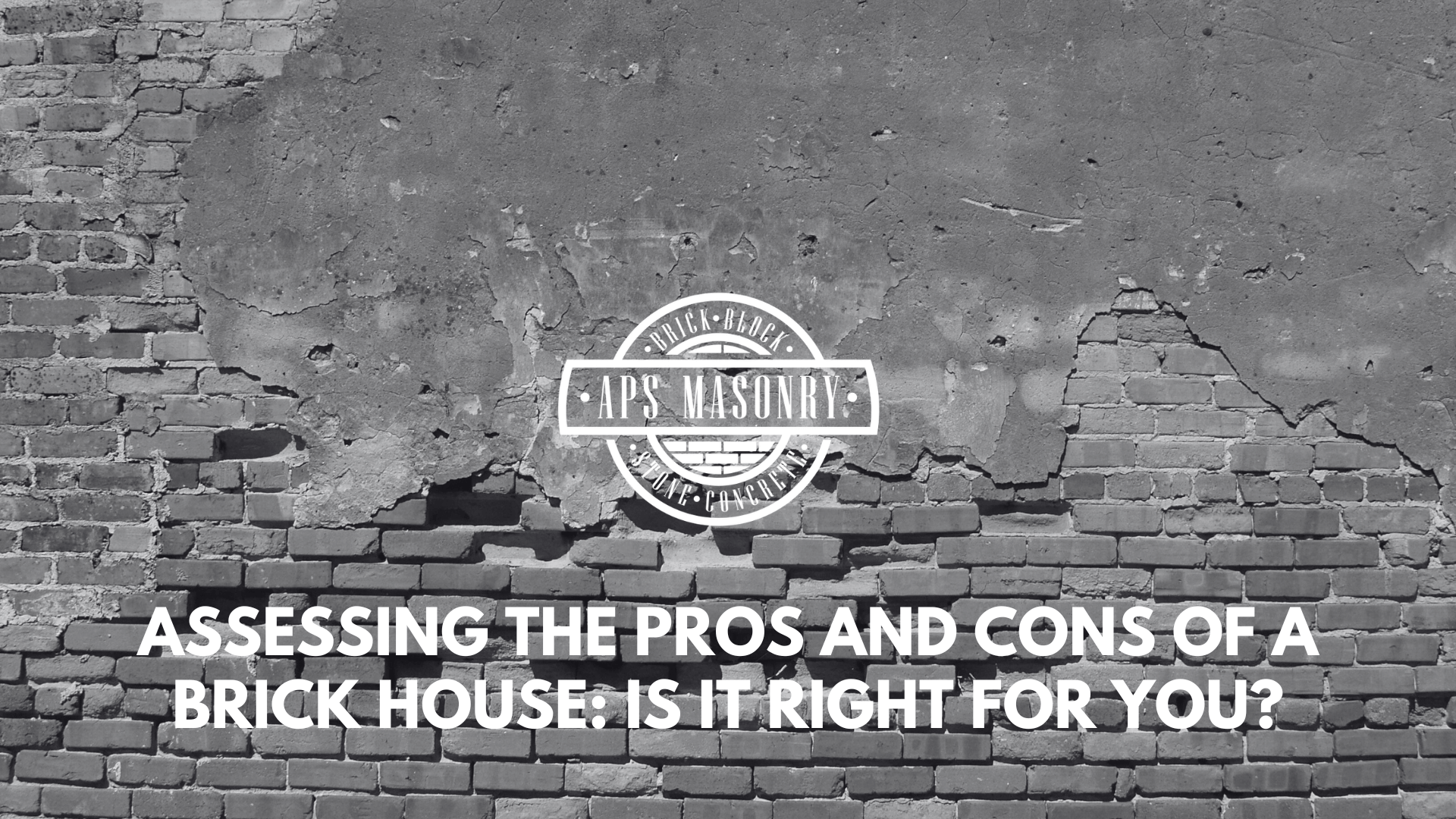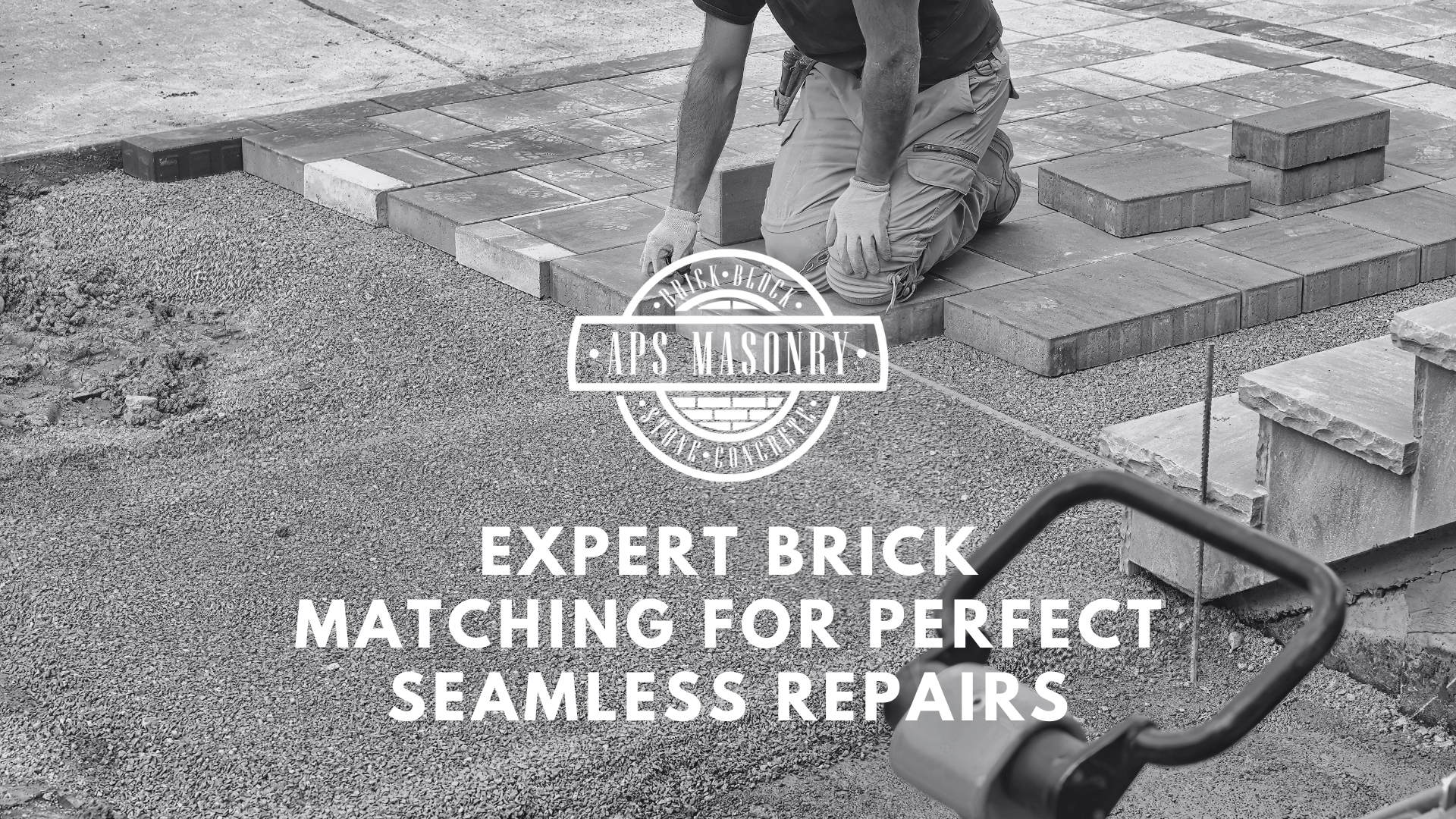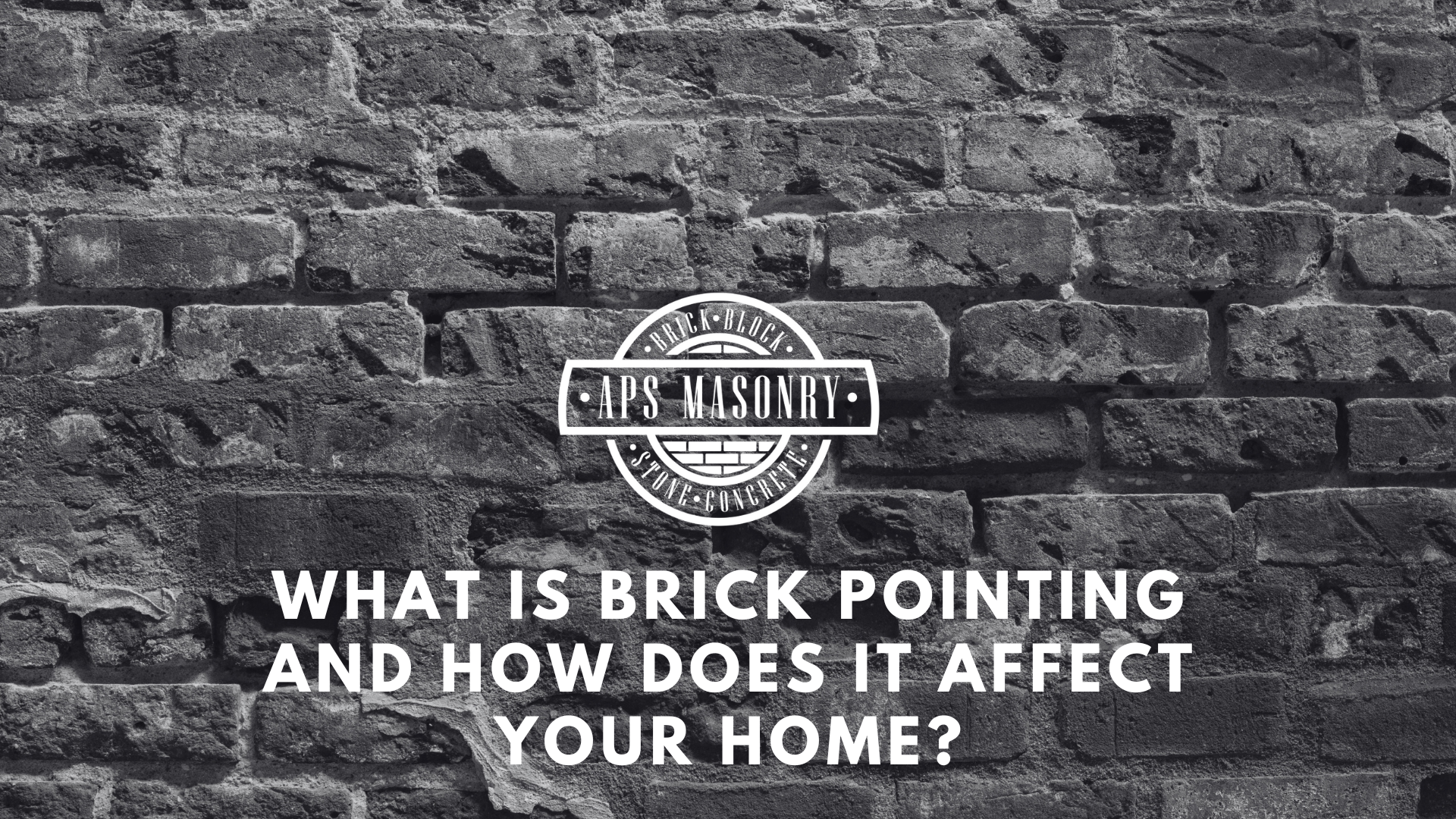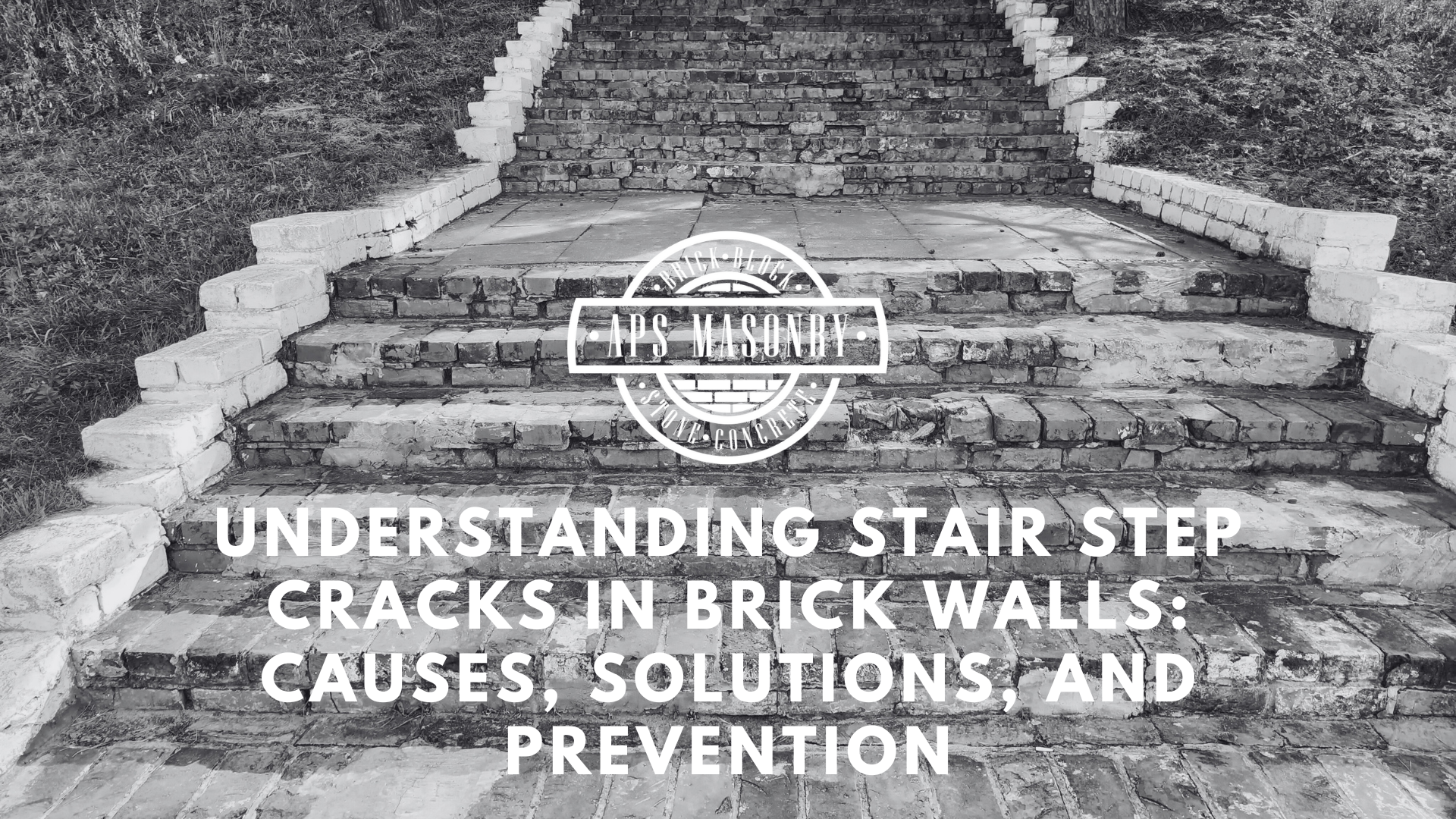How to Match Bricks: Tips for Seamless Repairs
Are you facing the challenge of matching bricks for repairs? Whether you're working on restoring a historic building or blending new bricks into an...

Thinking about a brick home? Our article helps you decide. Brick homes are strong, need little maintenance, and save on energy costs, boosting your property value. Although they cost more upfront, the long-term benefits can make it worth it. However, consider challenges like less flexibility for changes and insulation limits. Find out if a brick home is right for you. Read on for more details!
Brick homes are a testament to longevity and durability. They stand tall, weathering storms and resisting the ravages of time. Beyond their robust nature, the low maintenance lifestyle they offer makes them a preferred choice for many homeowners. The brick masonry, unlike wood or other building materials, is not susceptible to rot, pests, and weather damage, leading to fewer needs for repairs and maintenance over time.
Also, brick homes boast energy efficiency, beneficial for:
Brick houses are renowned for their longevity, with a lifespan extending to centuries with minimal maintenance. These enduring structures exhibit resilience against a range of weather conditions, including:
This demonstrates superior durability compared to wood, vinyl siding, brick veneer siding, or fiber cement siding.
They also hold up against severe natural events such as hurricanes, a testament to their strength and resilience.
The low maintenance lifestyle offered by brick homes is a major advantage. They resist rot, pests, and weather damage, which significantly reduces upkeep needs. Brick homes exhibit resistance to rot due to their sturdy construction and the inherent property of bricks to resist rot and the need for regular maintenance.
These homes also show resistance to termite and other insect infestations, making them a more durable and low-maintenance option compared to a wood framed house.
Brick homes offer an added advantage in terms of energy efficiency and comfort. Thanks to the insulating properties of bricks, these homes maintain a consistent internal temperature. The thermal mass of bricks effectively holds heat and gradually releases it, reducing the workload of HVAC systems and resulting in lower utility bills.
Thus, living in a brick home not only provides comfort but also contributes to a greener planet by reducing energy consumption.
Brick homes are not just about strength and durability; they also score high on aesthetics and functionality. The timeless curb appeal, superior sound reduction, and eco-friendliness of these homes make them a popular choice among discerning homeowners.
The aesthetic appeal of brick homes is further increased by their diverse color and texture options, and their ability to integrate seamlessly with various architectural styles. See our blog on types of brick for more information.
The timeless curb appeal of brick homes plays a significant role in increasing property value. Factors such as:
contribute to the enduring appeal of these homes.
The blending of classic brick with contemporary interior elements, and the use of painted brick exteriors offer a fresh and timeless aesthetic that appeals to a wide range of tastes.
Brick homes offer improved sound insulation due to their density, making them well-suited for noisy environments. The high mass of brick reflects noise away, providing a quieter and more peaceful living environment. Compared to wood and vinyl siding, brick has a higher sound blocking capacity, even when supplemented with thick insulation.
Bricks are crafted from some of the most abundant materials in nature, like:
This makes them an eco-friendly building material. Used bricks can also be recycled or reused, minimizing waste and reinforcing their role as a sustainable building option.
The production process uses abundant natural resources, integrates sustainable techniques, and results in long-lasting products with minimal waste generation.
.jpg?width=586&height=330&name=APS%20M%20Template%20(2).jpg)
Although brick homes offer numerous benefits, they come with their share of challenges and considerations, including the cons of a brick. The higher initial costs, limited flexibility for modifications, and insulation limitations need to be factored in when deciding to build a brick home. It’s important to weigh these factors against the advantages to make an informed decision.
Brick homes are more expensive to build due to the cost of materials and labor involved in their construction. These homes require the skills of a mason for proper installation, adding to the cost. However, the increased initial investment in brick homes is offset by their long-term advantages such as maintenance cost savings, exceptional durability, and environmental friendliness.
Remodeling a brick home presents heightened challenges primarily due to the difficulty in matching new bricks to the existing ones, as well as the notably labor-intensive and time-consuming construction process involved. The expenses related to modifying brick structures can be substantial, with costs ranging from $16,000 to $34,000 for bricking a 2000-square-foot property. Certain limitations, such as the permanent nature of alterations and the expense of materials, need to be taken into consideration.
While brick homes provide good insulation, they may not offer the equivalent level of insulation as modern materials, primarily because of their low thermal conductivity, which can affect their overall energy efficiency. However, it is feasible to raise the energy efficiency of brick homes by incorporating additional insulation such as Spray Polyurethane Foam (SPF) and modern foam panels.
Choosing a brick home goes beyond the initial investment and involves considering the financial implications in the long run. Brick homes are often associated with reduced insurance costs due to their robustness and ability to withstand damage. Additionally, they have a tendency to appreciate in value better than their wood or vinyl counterparts, thereby increasing the overall value of the property.
One of the financial advantages of owning a brick home is the potential for reduced insurance costs. Brick homes offer superior protection against various weather conditions, including:
This robustness generally leads to lower insurance rates.
Brick homes tend to have higher resale values due to their aesthetic appeal and low maintenance requirements. The visual appeal of brick homes has the potential to notably increase their resale value.
The low maintenance aspect of brick homes significantly influences their resale value, leading to greater appreciation and reduced insurance costs.
Brick homes offer more than just strength and durability; they also provide a canvas for creativity and personal expression. With a variety of colors and textures to choose from, brick homes offer endless design possibilities.
The inherent durability and versatility of bricks make them an excellent choice for landscaping applications, adding to the curb appeal of the property.
Bricks come in various colors, sizes, and finishes, offering a myriad of design possibilities. The choice of brick color significantly impacts the overall ambiance of a property. For example, white brick creates a minimalist aesthetic, while red brick often conveys a timeless appeal.
Different brick finishes also add depth and visual interest to the solid brick walls of the brick structure of the building, including its brick walls.
Leftover bricks are creatively repurposed for various landscaping projects, improving outdoor areas' aesthetic and practical aspects. From constructing patios or garden walls to creating brick pathways and raised garden beds, bricks offer a wealth of possibilities for bettering outdoor aesthetics and functionality.
While brick homes offer a low-maintenance lifestyle, they are not completely devoid of maintenance requirements. Over time, brick homes may require costly repairs and replacements, as well as regular maintenance of the mortar. Hence, you should budget for these potential expenses when considering a brick home.
Repairing brick homes can be expensive due to the cost of materials and labor. Common types of damages in brick homes include:
All of these issues can lead to substantial repair costs.
Brick homes may require occasional repointing to maintain the integrity of the mortar, which can be time-consuming and costly. Without proper maintenance, the mortar deteriorates and disintegrates over time, compromising the structural integrity of the brickwork. See our blog on tuckpointing vs repointing for more information.
In conclusion, brick homes offer a multitude of advantages, including durability, low maintenance, energy efficiency, and timeless aesthetic appeal. However, they also come with certain considerations such as higher initial costs, limited flexibility for modifications, and potential insulation limitations. Despite these challenges, the long-term financial benefits, such as insurance savings and improved resale prospects, make them a worthwhile investment for many homeowners.
Brick houses can be more expensive than other building materials, and the porous nature of brick can make it susceptible to mold and damage from plant growth, such as ivy. Date not available.
Brick houses are no longer as common due to the higher cost of brick construction compared to materials like wood or vinyl siding, making it a less popular choice for builders. Labor-intensive processes and the price of bricks contribute to these higher costs.
Brick houses can last at least 100 years with minimal maintenance, and with regular care and attention, including mortar repointing, they can last 500 years or more.
Brick homes have higher initial costs due to the need for skilled masons for proper installation and the significant expense of the material compared to other building materials.
Brick homes are energy efficient because they effectively hold and release heat, reducing HVAC workload and resulting in lower utility bills.

Are you facing the challenge of matching bricks for repairs? Whether you're working on restoring a historic building or blending new bricks into an...

Brick-pointing is very important for maintaining the structural integrity and beauty of your home. This process involves repairing and filling the...

Stair step cracks in brick walls can indicate serious structural problems like foundation settling and water damage. In places like Philadelphia,...